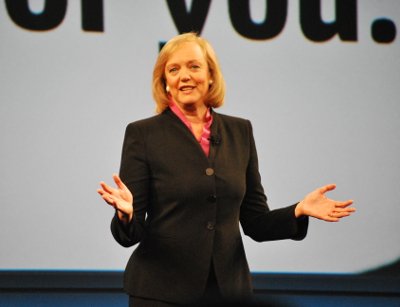Former HP CEO Leo Apotheker said he was shocked by HP’s allegations of fraud at Autonomy, the enterprise-software company HP bought while under his leadership.
“The developments are a shock to the many who believed in the company, myself included,” Apotheker, whom HP ousted in September 2011, said in a statement his representative sent to the Wall Street Journal.
As it announced net losses and revenue drop across nearly all of its businesses for its recently completed fiscal year 2012, HP said it had suffered an impairment charge of US$8.8bn. The company blamed most of this write-off on the former leaders of Autonomy, accusing them of cooking the books to make the company seem more profitable than it was.
HP’s ex-CEO claimed the due-diligence process was “meticulous and thorough” in the run up to the acquisition, which closed the same month he was forced to leave the company. The process relied primarily on public financial reports, which were approved filed and backed by Autonomy’s leadership, board and auditors,” he said.
Apotheker concluded his statement with promises of full cooperation in further investigation of the matter by HP and the authorities.
Mike Lynch, Autonomy’s founder and former CEO, whom HP kicked out in May, denied HP’s allegations in an interview with the Wall Street Journal. Lynch speculated that HP was forced to announce the massive write-off because of politics within the company and because of its mismanagement of Autonomy.
“I think what has happened here is that they have got themselves in a mess,” WSJ quoted him as saying. Since Apotheker, who led the acquisition, was ousted shortly thereafter in what Lynch said was an “internal coup d-etat,” Autonomy found itself “at odds with the divisions that were in power.”
HP’s mismanagement of Autonomy led to resignations of hundreds of the new subsidiary’s employees, Lynch said. “Sadly [HP] are left with the results of having destroyed all that value.”
In his interview with the Journal, Lynch also pointed to the due-diligence process HP went through before it closed the acquisition. Process, he said, involved hundreds of people and auditing services from KPMG and Barclays.
Representatives of KPMG and Barclays did not respond to a request for comment in time for publication.
Autonomy had also been routinely audited on a quarterly basis, Lynch said, adding that Deloitte had known the company very well. Deloitte representatives did not return phone calls seeking comment.
Lynch said the amount of money HP was writing off in connection with Autonomy was “just mad”. “That would be such an obvious massive thing with 300 people and all these firms doing due diligence, how could you possibly not spot it?” he said.
In HP’s defense, the company’s general counsel John Schultz said it had taken a long time to dig through Autonomy’s accounting records to find evidence of wrongdoing. In an interview with Reuters, Schultz said Autonomy’s books were not well maintained, and “critical documents were missing from the obvious places…”
HP reported net revenue of $30bn for the fourth quarter of fiscal 2012 – down 7% year over year. The company reported net loss of $6.9bn, compared to net income of $0.2bn it reported for the same period one year ago.
Its full-year fiscal 2012 revenue was $120.4bn – down 5% from revenue reported for fiscal 2011.
Commenting on the results, CEO Meg Whitman said fiscal 2012 was the first year in a multi-year journey to turn HP around. Since having replaced Apotheker in the CEO chair, Whitman has undertaken a massive restructuring at HP, which included the ouster of Lynch.
In a statement, HP said that some members of Autonomy’s former management team had used “accounting improprieties, misrepresentations and disclosure failures to inflate the underlying financial metrics of the company, prior to Autonomy’s acquisition by HP. These efforts appear to have been a willful effort to mislead investors and potential buyers, and severely impacted HP management’s ability to fairly value Autonomy at the time of the deal.”
HP said it remained fully committed to Autonomy’s technology, which does unstructured data analytics. The company is integrating Autonomy’s software with the real-time analytics database by Vertica, another company it recently bought, to create a unified analytics platform.
Autonomy’s analytics engine is called Idol 10. One of the examples of fraud Autonomy had allegedly committed was selling low-end hardware with “little or no associated software content”, and reporting it as license revenue from an Idol product, according to HP.
“This negative-margin, low-end hardware is estimated to have comprised 10-15% of Autonomy’s revenue,” HP said.

